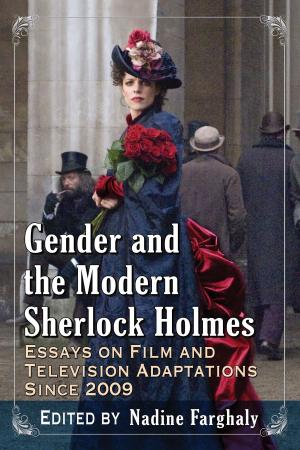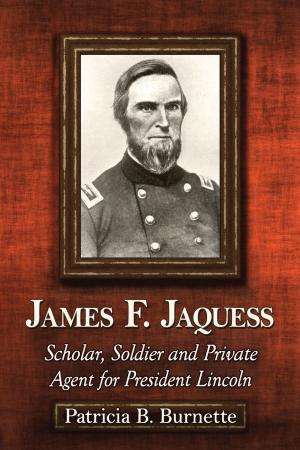Mike Nichols and the Cinema of Transformation
Nonfiction, Entertainment, Performing Arts, Film, Fiction & Literature, Literary Theory & Criticism| Author: | J.W. Whitehead | ISBN: | 9781476616421 |
| Publisher: | McFarland & Company, Inc., Publishers | Publication: | May 21, 2014 |
| Imprint: | Language: | English |
| Author: | J.W. Whitehead |
| ISBN: | 9781476616421 |
| Publisher: | McFarland & Company, Inc., Publishers |
| Publication: | May 21, 2014 |
| Imprint: | |
| Language: | English |
Mike Nichols burst onto the American cultural scene in the late 1950s as one half of the comic cabaret team of Nichols and May. He became a Broadway directing sensation, then moved on to Hollywood, where his first two films—Who’s Afraid of Virginia Woolf? (1966) and The Graduate (1967)—earned a total of 20 Academy Award nominations. Nichols won the 1968 Oscar for Best Director and later joined the rarefied EGOT (Emmy, Grammy, Oscar, Tony) club. He made many other American cinematic classics, including Catch-22 (1970), Carnal Knowledge (1971), Silkwood (1983), Working Girl (1988), Postcards from the Edge (1990), and his late masterpieces for HBO, Wit (2001) and Angels in America (2003). Filmmakers like Steven Spielberg and Steven Soderbergh regard him with reverence. This first full-career retrospective study of this protean force in the American arts begins with the roots of his filmmaking in satirical comedy and Broadway theatre and devotes separate chapters to each of his 20 feature films. Nichols’ permanent achievements are his critique of the ways in which culture constructs conformity and his tempered optimism about individuals’ liberation by transformative awakening.
Mike Nichols burst onto the American cultural scene in the late 1950s as one half of the comic cabaret team of Nichols and May. He became a Broadway directing sensation, then moved on to Hollywood, where his first two films—Who’s Afraid of Virginia Woolf? (1966) and The Graduate (1967)—earned a total of 20 Academy Award nominations. Nichols won the 1968 Oscar for Best Director and later joined the rarefied EGOT (Emmy, Grammy, Oscar, Tony) club. He made many other American cinematic classics, including Catch-22 (1970), Carnal Knowledge (1971), Silkwood (1983), Working Girl (1988), Postcards from the Edge (1990), and his late masterpieces for HBO, Wit (2001) and Angels in America (2003). Filmmakers like Steven Spielberg and Steven Soderbergh regard him with reverence. This first full-career retrospective study of this protean force in the American arts begins with the roots of his filmmaking in satirical comedy and Broadway theatre and devotes separate chapters to each of his 20 feature films. Nichols’ permanent achievements are his critique of the ways in which culture constructs conformity and his tempered optimism about individuals’ liberation by transformative awakening.















